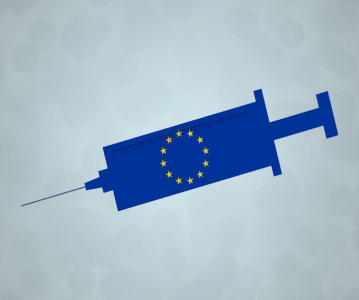Can a New Dietary Supplement Help Minimise the Risk of Breast Cancer?

In the UK, about 1 in 8 women will develop breast cancer at some point during their lifetime. While there is no guaranteed way to prevent the disease, there are steps that may help lower the risk — especially for those at an increased risk of developing breast cancer.
As well as leading a healthy diet and lifestyle, women who are at risk or worried about breast cancer may be able to lower their chances of developing it, by supplementing their diet with a revolutionary new supplement, ProfBiotics Breast. Welcomed by leading cancer experts, it has been developed in consultation with Professor Martyn Caplin, leading cancer specialist and consultant gastroenterologist at London’s Royal Free Hospital, following a comprehensive review of clinical evidence investigating the role of specific nutrients in breast cancer prevention.
The supplement has been formulated to contain the specific blend of ingredients to help support breast wellbeing:
• Lycopene (tomato powder 5 mg), which has been increasingly associated with breast well-being. Studies suggest that women with higher circulating levels of lycopene may be at reduced risk of breast cancer
• Vitamin D (12.5 mcg [500 IU]), which has been found to regulate cell death – data suggest there is an association between lower levels of vitamin D and higher rates of breast cancer
• Zinc ([from Citrate] 7.5mg) — studies find that low zinc intake may be linked to breast cancer risk
• Curcumin (extract 25:1 — 240 mg providing 6000 mg whole herb equivalent) , which appears to be useful in preventing human breast cancer development.
The formula contains the equivalent of eight teaspoons of turmeric which would be difficult to consume each day through diet alone.
Cancer experts have welcomed the initiative. Justin Stebbing, Professor of Cancer Medicine and Oncology at Imperial College London, comments, “Any approach which may help reduce cancer risk utilising diet and appropriate nutrients is of huge potential value for individuals and society. The combinations used in these products are in line with the results of scientific research studying different tumour types and represent a new approach to tackling cancer incidence through diet and nutrient supplementation. The formulations may also have a role during and after cancer treatment for nutritional support, and to counter adverse effects of chemotherapies.”
Related News
-
News Patients vs Pharma – who will the Inflation Reduction Act affect the most?
The Inflation Reduction Act brought in by the Biden administration in 2022 aims to give better and more equitable access to healthcare in the USA. However, pharma companies are now concerned about the other potential costs of such legislation. -
News CPHI Podcast Series: What does the changing US Pharma market mean for industry and patients alike?
In this week's episode of the CPHI Podcast Series Lucy Chard, Digital Editor for CPHI Online is joined by James Manser to discuss the political and market changes in the US pharma field. -
News CPHI Barcelona Annual Report illuminates industry trends for 2024
The CPHI Annual Survey comes into it’s 7th year to report on the predicted trends for 2024. Over 250 pharma executives were asked 35 questions, with their answers informing the industry landscape for the next year, spanning all major pharma marke... -
News Which 10 drugs are open to price negotiation with Medicare in the USA?
The Centres for Medicare & Medicaid Services, under the Biden administration in the USA, has released a list of the 10 drugs that will be open to price negotiations as part of the new legislation under the Inflation Reduction Act (IRA). -
News EU Medical Devices Regulation causes unintended disappearances of medical devices for children, doctors state
Doctor groups and associations have appealed to the EU to correct the EU Medical Devices Regulation law that may cause unintended shortages of essential drug and medical devices for children and rare disease patients. -
News 10 Major Drug Approvals So Far in 2023
Last year, 37 novel drugs were approved by the FDA, this was a high number for such a category, and covered many fields including oncology, demonstrating how promising further research is, and how it is only continuing to build. To date, there are alre... -
News Detecting Alzheimer's disease with a simple lateral flow test
A novel rapid diagnostic test for early-stage Alzheimer's disease has been developed using a biomarker binder from Aptamer Group along with technology from Neuro-Bio, the neurodegenerative disease experts. -
News CPHI Podcast Series: outsourcing and manufacturing trends
Listen to the CPHI Podcast Series this June to hear Gil Roth of the PBOA speak with Digital Editor Lucy Chard about the biggest trends and topics to watch in pharma outsourcing and manufacturing at the minute.
Position your company at the heart of the global Pharma industry with a CPHI Online membership
-
Your products and solutions visible to thousands of visitors within the largest Pharma marketplace
-
Generate high-quality, engaged leads for your business, all year round
-
Promote your business as the industry’s thought-leader by hosting your reports, brochures and videos within your profile
-
Your company’s profile boosted at all participating CPHI events
-
An easy-to-use platform with a detailed dashboard showing your leads and performance







